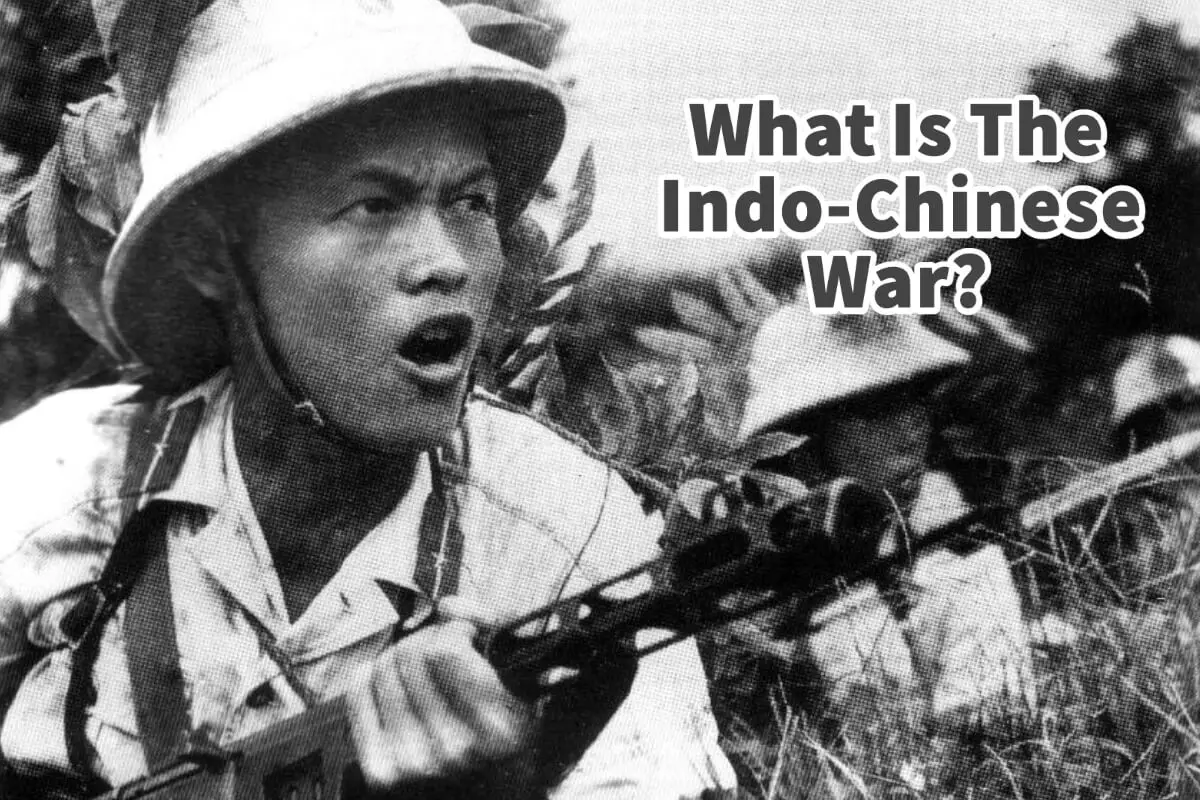Many people wonder what the Indo-Chinese war was or when and where did this war happen?
The Indo-Chinese war is the Indochina war. Most historians consider that the two Indochina Wars took place mainly in Vietnam in Southeast Asia. The first war took place from 1946 to 1954 in North Vietnam between the Viet Minh and the French forces. The second Indochina War, also known as the Vietnam War, was between the United States and the Viet Cong or North Vietnamese forces.
Table of Contents
- About The Indo Chinese Or Indochina Wars
- The First Indo-Chinese Or Indochina War (1946 to 1954)
- The Second Indochina War Or The Vietnam War (1954 to 1975)
- Related Questions
About The Indo Chinese Or Indochina Wars
The Indo-Chinese War is referred to as the Indochina war. It was a war between the French and Viet Minh or North Vietnamese and between the Vietnamese and American forces.
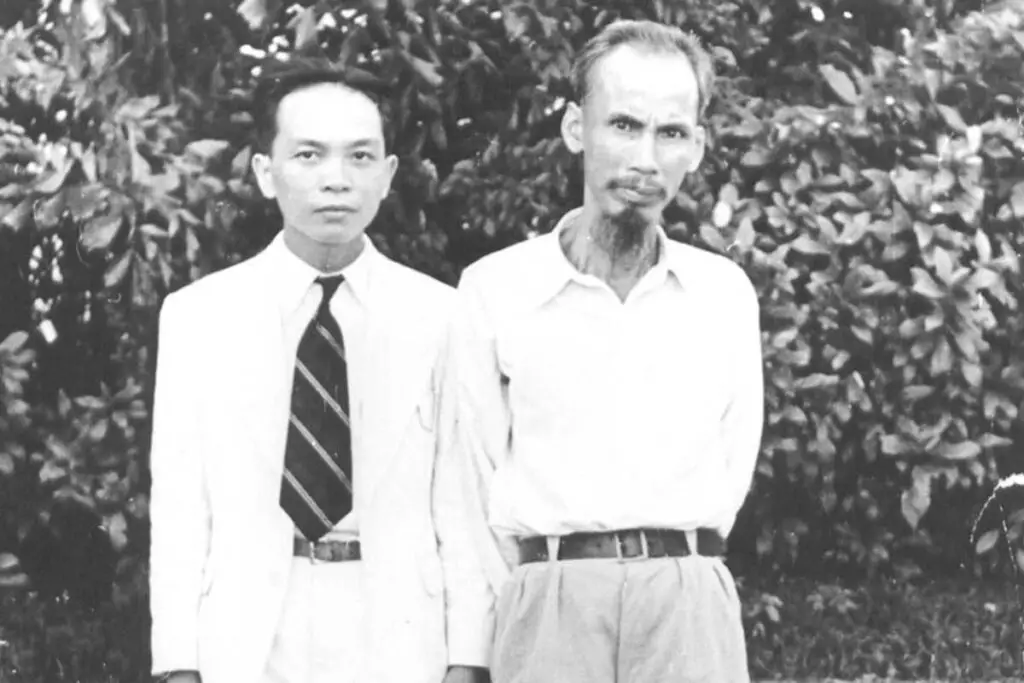
The prominent Vietnamese leaders in these wars were Ho Chi Minh and General Vo Nguyen Giáp.
The wars are called Indo-Chinese or Indochina wars because these 20th-century conflicts took place mainly in Vietnam, Laos, and Cambodia and involved the French. French Indochina or Indochine Fracasise was when France had part of Vietnam, Cambodia, and Laos as part of their territory.
The second Indochina war is the war between the United States and Vietnam. This war also involved Ho Chi Minh and General Vo Nguyen Giáp.
The First Indo-Chinese Or Indochina War (1946 to 1954)
In the latter half of the 19th century, the French gradually conquered Vietnam. The French controlled Vietnam from 1883 to 1945. In 1945 or just after World War II, the Nationalist Leader Ho Chi Minh proclaimed independence from the French on September 2, 1945.
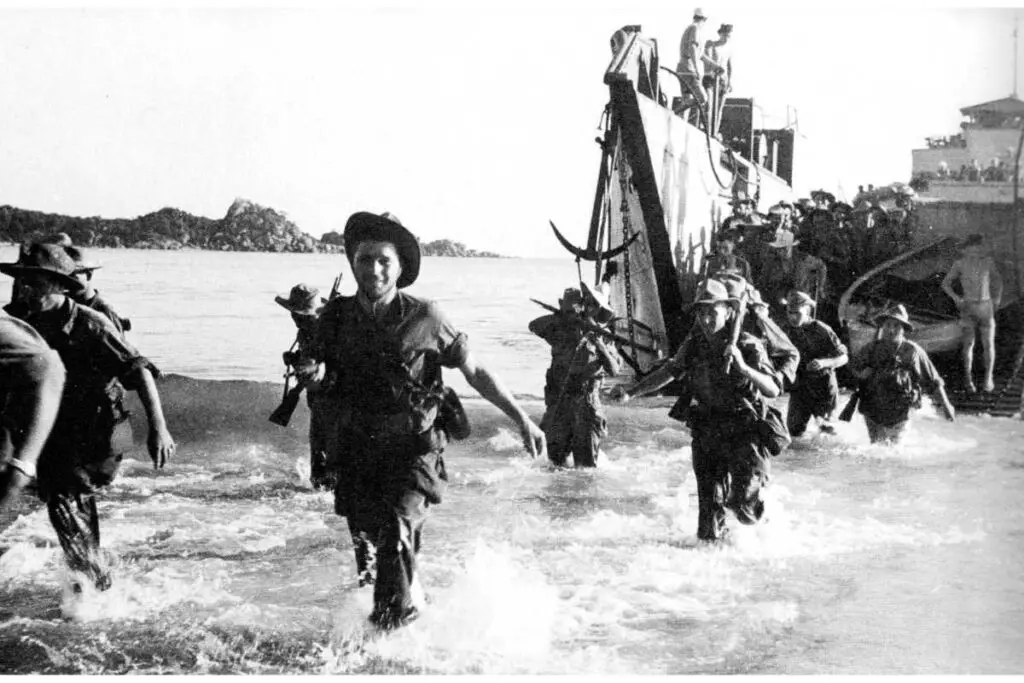
During World War II, the Japanese occupied what was known as the Tonkin area, or mainly North Vietnam. During this time, the French were still in the seat of the government, but the Japanese occupied the country.
With the Japanese defeat in World War II, Ho Chi Minh and the Viet Minh saw an opening for them to declare Vietnamese independence. The regime the Japanese had in Vietnam had collapsed entirely.
The French opposed the independence of Vietnam and wanted to keep control of Vietnam. Ho Chi Minh led guerrilla warfare against the French, ending at Dien Bien Phu on May 7, 1954. The Dien Bien Phu defeat was humiliating to the French as they found themselves at this French outpost surrounded by the Viet Minh forces.
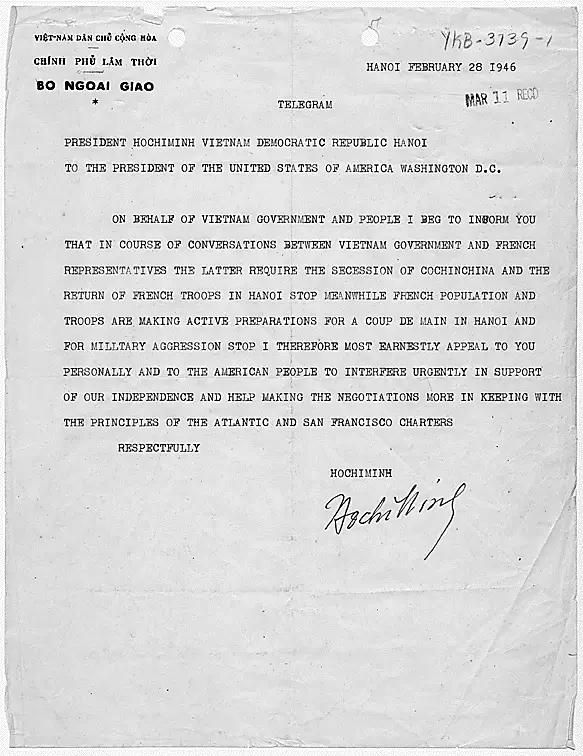
In July 1954, an agreement was signed in Geneva, providing a temporary division of Vietnam into North and South Vietnam. The division of Vietnam took place on the 17th parallel of latitude between communist-led North Vietnam under the direction of Ho Chi Minh and an American-southern supported South Vietnam.
Some pro-communist interventions in South Vietnam led to the United States becoming more and more involved in the politics of South Vietnam.
The main thing that Ho Chi Minh wanted for the Vietnamese was complete independence. Parts of Vietnam had been under Chinese rule for 1,000 years and under French rule for about 100 years. Ho Chi Minh wanted the Vietnamese to have independence and liberty from all foreign powers.
Ho Chi Minh said this about liberty and freedom:
“Nothing is more precious than independence and liberty.”
Ho Chi Minh
The Second Indochina War Or The Vietnam War (1954 to 1975)
After 1954 and the signing of the agreement in Geneva, south Vietnam was under the leadership of the United States. At this time, the communist lead government of north Vietnam wanted to unite the entire Vietnamese area or North and South Vietnam into one country.
Because of the US involvement in Vietnam, the Vietnam War with America is sometimes referred to as the Second Indochina War; the Vietnam War is also called the Vietnam Conflict, or in Vietnam, they call it the American War.
The United States was involved in the second Indochina War or the Vietnam War. In 1948 the United States State Department issued this statement about the war:
“Our long-term objectives are… to see installed a self-governing nationalist state which will be friendly to the US… We have an immediate interest in maintaining in power a friendly French Government, to assist in the furtherance of our aims in Europe. This immediate and vital interest has in consequence taken precedence over active steps looking toward the realization of our objectives in Indochina.”
U.S Department of State, “Policy Statement on Indochina,” issued on September 27, 1948
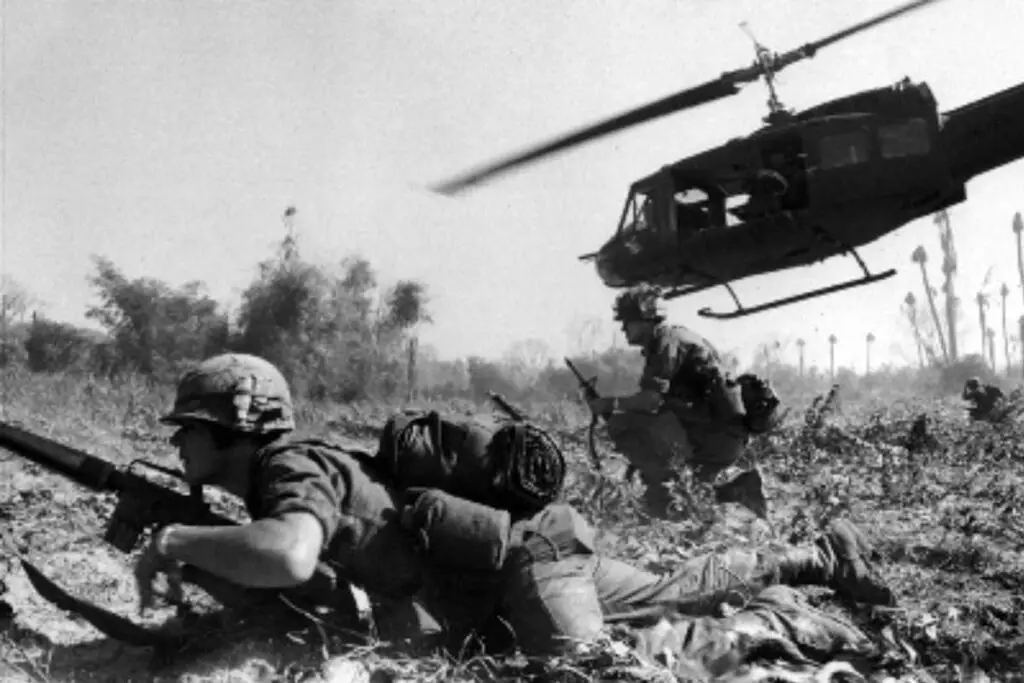
The problem was that the deeper the United States got involved in the Vietnam conflict, the more resources and soldiers they sent to Vietnam. The United States sent many people and money over to Vietnam, hoping to win the war.
The Viet Minh and Viet Cong were two forces with North Vietnam who supported the war. The Viet Minh was the political organization in Vietnam whose primary focus was to gain support for Vietnam’s unification and independence; the Viet Con was a military force whose primary focus was the fight for Vietnamese independence.
The war proved to be a brutal war for the Americans to fight. There was no defined frontline, as the enemy was in North and South Vietnam. The Vietnamese also had the will to win the war at all costs to themselves regarding lives and resources.
The war did end, but not in the way the Americans hoped. In April 1975, Pres Gerald Ford made this statement:
“During the day on Monday, Washington time, the airport at Saigon came under persistent rocket as well as artillery fire and was effectively closed. The military situation in the area deteriorated rapidly. I therefore ordered the evacuation of all American personnel remaining in South Vietnam.”
President Gerald Ford’s statement announcing the evacuation of United States personnel from the Republic of Vietnam on April 29, 1975
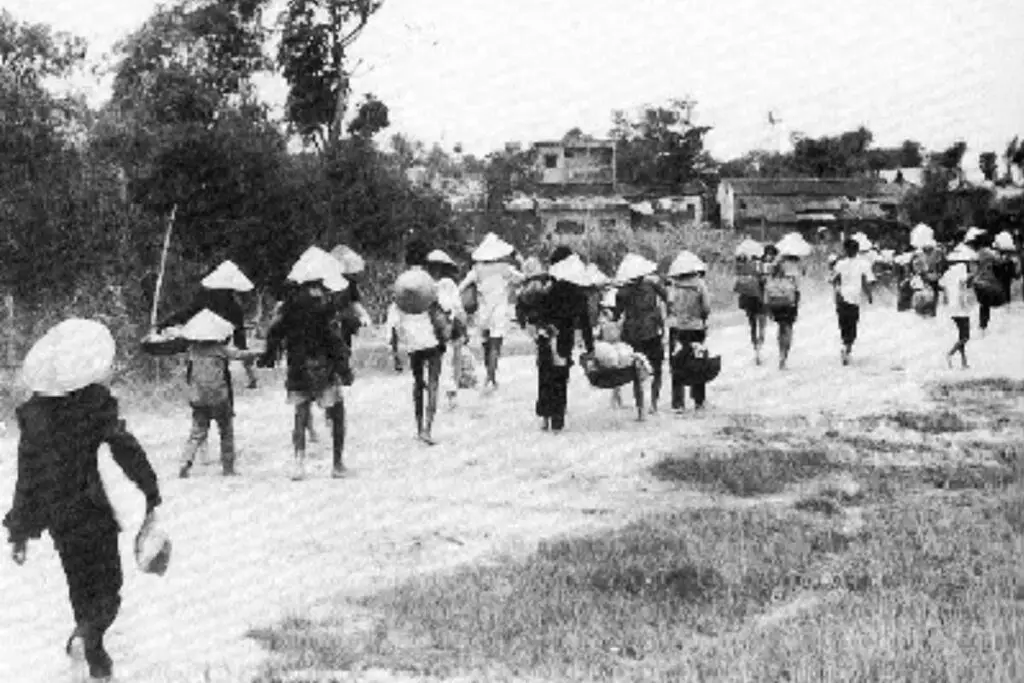
And that statement ended the United States’ involvement in the second Indochina war or the Vietnam war. American troops and personnel left Vietnam and exacuated South Vietnam. In the process, the Viet Cong or the North Vietnamese forces took control of South Vietnam.
At A Bus On A Dusty Road, we talk about history, travel, life, sailing, and ex-pat living. We are all about “Living Life As A Global Citizen.” We explore social, cultural, and economic issues and travel.
We would love to have you be part of our community. Sign up for our newsletter to keep up-to-date by clicking here. If you have any questions, you can contact me, Anita, by clicking here.
Listen to our Podcast called Dusty Roads. You can find it on all major podcast platforms. Try out listening to one of our podcasts by clicking here.
Subscribe to our A Bus On A Dusty Road YouTube Channel filled with great videos and information.
Related Questions
What U. S Companies Profited During The Vietnam War?
During the Vietnam War many U.S. companies profited from the Vietnam war. Some of these companies were heading toward bankruptcy, but their involvement in the Vietnam war helped make them profitable. For many others, they earned millions of dollars each year in profits from the war that helped ensure they continued to be successful or even thriving companies.
By clicking here, you can discover What U. S Companies Profited During The Vietnam War?
Could America Have Won The Vietnam War?
America could not have won the Vietnam war as it never won the hearts and minds of the Vietnamese people. The Americans even had difficulty controlling the Vietnamese people in Southern Vietnam, as many were disillusioned with the Southern Vietnamese government. Ho Chi Minh, the leader of North Vietnam, fully understood that another foreign power would not control the Vietnamese heart and soul.
By clicking here, you can discover Could America Have Won The Vietnam War?
What Was The Main Reason For US Involvement In Vietnam?
The main reason for the involvement of the United States in the Vietnam War was the belief in the Domino theory; the Domino theory was a principle used to describe the effects on the world if Vietnam fell to communism. The belief was that if Vietnam became communist, the rest of Asia, New Zealand, and Australia would eventually become communist. At the time, American leaders felt they were fighting for the survival of democracy throughout the world.
By clicking here, you can learn more by reading What Was The Main Reason For U.S. Involvement In Vietnam?

